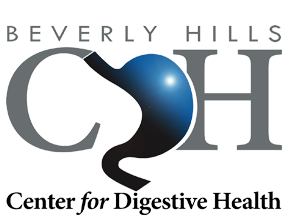EGD Developments in Beverly Hills
BOOK APPOINTMENTEGD (esophagogastroduodenoscopy or upper GI endoscopy) is an examination of the entire esophagus, stomach, and duodenum for abnormalities. An extended and maneuverable tube is inserted into the mouth to view the upper GI tract.
During the EGD procedure, once a polyp or other abnormal tissue is found, it can be removed immediately by the doctor. The sample is taken for further analysis to determine if a surgical procedure is necessary.
It is recommended that you arrive to the office for an EGD on an empty stomach. No food or drinks should be consumed at least eight hours before the procedure. You will lie down, mostly on the left side of your body, and the endoscope instrument is inserted into your mouth. The fiber-optic light located on the endoscope is used to pump air into the stomach to allow it to inflate and accommodate the best viewing options.
The endoscope camera will transmit the images to a computer screen. Instruments will then be used to remove polyps, extract tissue samples, inject solutions, or remove infected tissues.
The entire procedure will generally take less than 20 minutes. Once it concludes, you will wait an hour for the effects of the sedative to diminish. Your escort will be driving you home to rest for the remainder of the day. If persistent pain accompanies you following the procedure, consult with Dr. Mark M. Davidson in Beverly Hills.
If the EGD reveals the presence of an ulcer, polyp, or other abnormal tissue, subsequent surgery may be necessary.
Our Blogs
Accurate Diagnostics for Anorectal Strength and Function
Back to BlogsAre you having problems producing healthy bowel movements? The problem may be the muscles around your digestive tract either not coordinating properly or lacking strength. To get your GI problems addressed as soon as possible, visit the Beverly Hills...
Pelvic Floor Dysfunction?
Back to BlogsPelvic floor dysfunction is the inability to relax and coordinate your pelvic floor muscles to allow for smooth defecation. Fortunately, there are treatments available, including biofeedback, medications, and physical therapy. Reclaim strength and comfort...
Cutting-Edge, Compassionate Care Can Help You Find Hemorrhoids Relief
Back to BlogsHemorrhoids can be debilitating and painful, but treatment is available. If you’re suffering from hemorrhoids, make an appointment at the Beverly Hills Center for Digestive Health. We offer cutting-edge, compassionate care to help you find hemorrhoids...
Call to Schedule
Our office is available to answer your questions and evaluate your symptoms.

Phone
(310) 855-0222
Fax: (949) 404-6467
Hours
Mon - Fri: 9am – 5pm
Sat - Sun: Closed